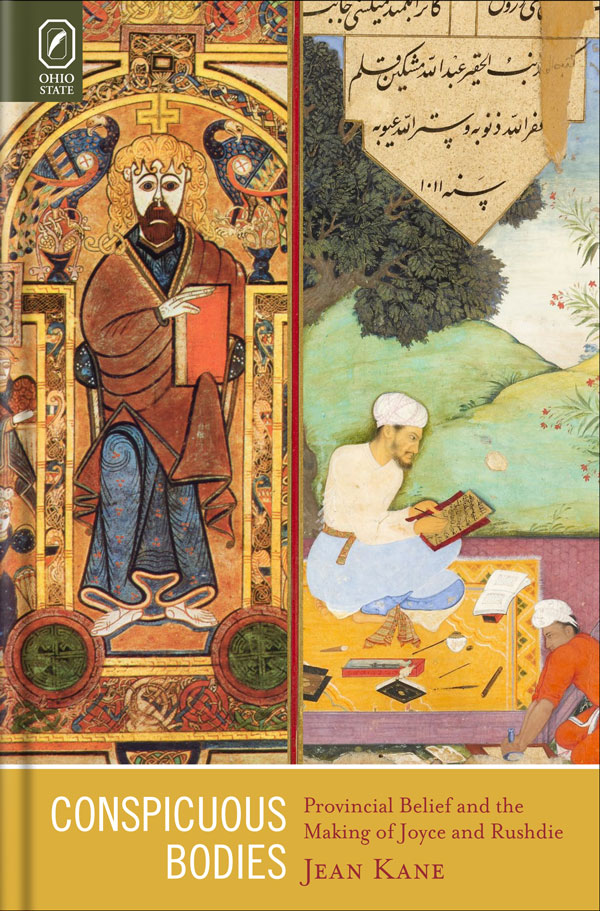Conspicuous BodiesProvincial Belief and the Making of Joyce and RushdieJean KaneLiterature, Religion, and Postsecular Studies |
 7/01/2014 Literary Criticism/European/English/Irish; Religion/Literature 209 pp. 6x9  $59.95 cloth 978-0-8142-1260-8 Add cloth to shopping cart $27.95 paper 978-0-8142-5282-6 Add paper to shopping cart $14.95 CD 978-0-8142-9364-5 Add CD to shopping cart Shopping Cart Instructions Review/Change Shopping Cart & Check-out | |||
|
“Jean Kane’s study, a critical assessment of Joyce and Rushdie’s provocations against religious orthodoxy, should be essential reading for modernists, postcolonialists, as well as scholars who straddle these subdisciplines. In addition to approaching these authors’ important novels and short stories with a fresh and often quite original lens, Kane engages with a wide array of current critical texts in Joyce studies and Rushdie studies. Her work makes an important contribution to the recent efflorescence of work on religion in Joyce in particular, and deepens our understanding of the many thematic and philosophical links between the two authors.” —Amardeep Singh, Lehigh University “Conspicuous Bodies is an exciting and highly intelligent work, which will make a strong impact in a series of very lively debates. It has just the right amount of iconoclasm and incisiveness to be thoroughly appealing to Joyce and Rushdie scholars, to postcolonial theorists, to people thinking about how religion works in literature, and to people thinking how we might get beyond western models of selfhood and value. In recent years, I have seldom been as enthusiastic about a book as I am about this one. I recommend this book strongly.” —Enda Duffy, professor of English, University of California, Santa Barbara In Conspicuous Bodies: Provincial Belief and the Making of Joyce and Rushdie, Jean Kane reexamines the literature of James Joyce and Salman Rushdie from a postsecularist perspective, arguing that their respective religions hold critical importance in their works. Though Joyce and Rushdie were initially received as cosmopolitans, both authors subsequently reframed their public images and aligned themselves instead with a provincial religious identity, which emphasized the interconnections between religious devotion and embodiment. At the same time, both Joyce and Rushdie managed to resist the doctrinal content of their religions. Conspicuous Bodies presents Joyce as a founder and Rushdie as an inheritor of a distinctive discourse of belief about the importance of physical bodies and knowledge in religious practice. In doing so, it moves the reception of Joyce and Rushdie away from what previous critics have emphasized—away from questions of aesthetics and from a narrow understanding of belief—and instead questions the assumption that belief should be segregated from matters of physicality and knowledge. Kane reintroduces the concept of spiritual embodiment in order to expand our understanding of what counts as spiritual agency in non-Western and minority literatures. Jean Kane is associate professor of English at Vassar College. | ||||

